Rohan Samant, IPS
The task I have set for myself is to demystify the UPSC examination, for the consumption of the candidates aspiring towards making it to those corridors of power that the civil services promise. My purpose is to provide mere guidelines for preparation. I must caution the reader, that much of the effort and hard work will have to be put in by him/her. I can only shed some light on the path towards the ultimate goal.
The UPSC preliminary test General Studies paper is distinctly different from most standardised aptitude tests on account of its focus on general knowledge based questions. These questions require application of a strong knowledge base mixed with reasoning and analytical strategies. Mere cramming of information might not yield higher scores. Solving objective-type questions requires both the knowledge of the correct option and the ability to elimination of the wrong options. Thus, it might be possible to arrive at the correct answer, in spite of not knowing it to be such.
Analysis of the last 10 prelims papers leads to certain insights, which will help in the preparation for the forthcoming exams. Given below are few salient points, which appear to feature in the previous examinations. By no means, should these observations be considered as gospel. They are mere pointers which will aid a candidate in channelising her/his efforts during preparation and thus towards maximising her/his score.
The questions are often not based on a single fact. There is a higher incidence of nested questions, which require you to look at 2 or 3 different facts and choose which all are correct.
Rohan Samant, IPS, has authored this article exclusively for TestFunda.com. For a FREE UPSC prelims test (GS + CSAT) with detailed explanatory answers and comprehensive personalized analysis logon to TestFunda.com.
Rohan was selected to the India Police Service in the 2008 list, with an all india rank of 159. He underwent training at Sardar Vallabhbhai Patel National Police Academy, Hyderabad and was allotted the Tamil Nadu cadre and currently works as the ASP undergoing training at Kanchipuram.

TestFunda.com is the leader in online MBA test preperations and has complete preparatory material for comprehensive MBA preparation. To free download and recieve SMSes, logon to TestFunda.com
Tips to crack UPSC examination
Often, subtle clues are provided which if identified, make the question simple. The clues often involve the distortion of basic facts, or some far-fetched unverifiable claims etc. The trick is to eliminate such spurious information and arrive at the correct answer.
The questions, while loosely based on the topics mentioned, are largely based on certain prevailing trends such as current events, historical importance in the current times or issues interconnected with current events. For example in 2008, around the time of the FIFA world cup, a question featured four countries as options and the candidate had to choose the country that did not qualify for the world cup that year.
Likewise, around the same time a question could have been asked pertaining to the victors/venues o the first/previous world cup etc.
In case of history questions, apart from hardcore historical facts, questions are asked about events completing a century or 150 years etc. Thus, around 2007 questions pertaining to 1857 mutiny were asked. (150 years of the first war of mutiny were celebrated. A question about V D Savarkar's book 1857: First War Of Independence was asked around then.
Likewise, it can be established that historical events celebrating 50-100-150 year anniversaries become important in that context.
There is an increasing focus on business trivia and general knowledge in that area. Often, we find names of business leaders, major corporations, their area of operations etc are asked.
Tips to crack UPSC examination
There are a high number of questions on general trivia related to science and scientific discoveries. There are ample questions based on popular inventions and inventors, scientific discoveries, Nobel Prize winners and their area of research etc.
Questions on sports, sporting triumphs and long-standing records of sportsmen are often asked.
Questions on Indian polity are largely connected to articles/amendments/political movements of a more recent origin. For example amendments in the last decade or articles in current news such as 102/ 104 etc have been asked in the last few years.
Questions on geography/geology/world resources are also based on political or current affairs context. Thus, around the time of India inking the deal with NSG, questions pertaining to uranium reserves, largest exporters etc were asked.
Questions on arts/entertainment often revolve around theatre/movie personalities in news, major achievements in the field, and appointments to various national academies etc. In 2006, question was asked about the director of the Movie Paheli, which had then been selected as the Indian entry to the Oscars.
Questions are also sourced from the India yearbook, which largely records major Indian achievements in the field of agriculture, governance, developmental activities, resources etc.
Questions connected with world events and international personae are also important. During the UK elections, questions were asked pertaining to the political party of the previous Prime Ministers.
Questions on mental ability have increased in number and slightly, in the level of difficulty.
Thus, on observing the last few PT papers, I have come to a conclusion that strong emphasis on traditional book-based knowledge of history, geography, Indian polity, science, mathematics, current affairs etc, due effort must be made towards connecting the same with general knowledge trivia, historical events, etc.
Tips to crack UPSC examination
Also, lateral knowledge about any person/event/place is important. Mere facts are not tested. The relevance of the facts in the current context needs to be highlighted. Thus, the nature of preparation must be such to accommodate all the above trends.
The preparation should thus be as broad-based as possible. Instead of specialising on a few topics, the candidate is expected to have a wide range of know-how about multitudes of topics. A candidate with a wide range of reading and the ability to connect diverse pieces of information stands a better chance in such a scenario.
A good strategy would be to have an inquisitive approach towards life, right from the beginning. Preparation for UPSC, right from childhood would mean mere reading of newspapers, magazines, trivia books, use of internet sites such as Wikipedia, askjeeves, etc. The candidate should merely look around currently available facts and in turn create a solid knowledge base. In such a case, there would be no need to prepare for the UPSC PT separately. I will dwell more on the strategies for preparation in the next discussion.
Having observed the nature of the UPSC Prelim test papers, we now focus on the preparation for the same. In this context, I will briefly touch upon the general strategies and reference material that helps during the preparation. These have worked for me in the past in achieving high scores in the 2006, 2008 and 2009 prelims.
Naturally, by no means, can this list of books and strategies be considered exhaustive. I strongly urge the candidate to analyze the previous years' question papers, look at the UPSC syllabus , consult other successful candidates and thus, come to his/her own conclusions. Extensive reading is always recommended. There is no dearth of information available and thus no end to what levels of preparation one might achieve. Use the reference material mentioned here, only after due consideration.
Tips to crack UPSC examination
Image: UPSC topper in 2009 Shubhra SaxenaPhotographs: Careers360
Newspapers for current affairs and trivia:
At the outset, let me begin with insisting on a thorough reading on a good, standard daily. People insist on The Hindu as a must read. I, however, found that The Hindu is not published in certain cities, namely, Mumbai. As a consequence, I could lay my hands on the Chennai edition only on late evenings and not till Monday in case of the Sunday editions. This affected my daily schedule. I thus recommend reading newspapers such as The Times / The Hindustan Times in case of such logistic issues. One can always refer the online editions of other newspapers for the editorials or any special news items. While reading any good newspaper, I recommend focussing on both the trivial facts as well as the deep seated analytical understanding, found in the inside Op-Ed pages. Focus on the International politics, Science and Technology bits, Business news and the Sports sections.
Keep a diary / scrapbook of any information that might seem relevant from the exam point of view. Thus, tables/graphs showing world resources, economic data, sports history, business successes, science marvels etc should be duly recorded.
Special effort needs to be taken about places/ persons in news for sudden or extraordinary reasons. It also pays to read captions under photographs printed in the newspapers. These invariably carry the more important news bits.
History and geography
I have always found the NCERT history/ Geography/ Social Science books useful when preparing for basic history questions. The textbooks for standards IX-XII are particularly important. However, a quick reading of the books for earlier classes, namely, Vth to XIIth are also recommended. They serve as memory refreshers to your schooldays, while preparing a base for the other reading material.
In both History and Geography, there is extensive material available online and in UPSC manuals such as TMH, Spectrum, Unique, etc. This can serve as background / detailed reading if necessary. Most important is to solve as many objective type questions possible. These can be found on the net as well as in the above mentioned manuals.
I also recommend Bipin Chandra's book on the Indian National movement for history. Though, I should ideally point out that the nature of questions is often a bit different, and a few questions escape the net, i.e.; they are asked from sources not easily available.
Science and technology
The NCERT books are very helpful in refreshing the facts learnt in school. Special focus and emphasis should ideally be on biology/medicine related material. In this case, reading up news articles / magazines covering the latest in medicine, biotechnology, space technology, electronics & computers, nanotechnology etc.
I also recommend much effort being put in solving as many multiple choice questions, such as the ones found in the UPSC manuals, online test-series, and competitive examination magazines etc. The questions to which the answers are not clear, should be referenced with the above mentioned material or online on Google.com or Wikipedia.org.
Polity
I have found that D. D. Basu and Fadia's book on the Indian constitution and Indian government to be very useful to prepare the basic understanding for the subject of Indian Polity. However, in terms of an objective-type question paper, these books are lacking. Thus, focus on newspapers and magazine for the latest trends in Indian Polity, the Constitution of India, Articles and Amendments in news above all. As the cost of repeating myself, I strongly insist on exposure to as many questions as possible in this context as well.
General knowledge and trivia
This is the toughest section to prepare for in the UPSC prelim test. This is primarily because of the extensive nature of the information available before us and the restricted time-frames we operate in. The simple methodology that I have always employed is-'Be as curious as possible'; there is no shortcut to an extensive general awareness.
Nevertheless, the books and resources I have trusted are as follows:
Read up on every new concept, person, place on Google.com or Wikipedia.org, as is possible. Invest extensively on trivia books and quiz-books. Take time-off and watch 'Kaun banega Crorepati' and similar quiz-shows. I recommend books such as 'The India Quiz Book by Derek O'Brien, published by Penguin Books', '10000 Quiz Questions', etc.
Solve as many trivia quizzes online; Read as many trivia bits in newspapers and magazines; and, mainly, use the internet as much as possible to read up on random yet interesting bits as possible.
Conclusion
To sum up, I advise exposure to as much information as possible. Keep in mind the timelines, thus, plan accordingly. A newspaper has to be read daily. Similarly, don't let the monthly magazines pile up. Finish the previous one before you purchase the new one. Do not compromise on the information, hence, read from as many sources as available. At the end of each read, take time to internalize the information and analyse the same. Mere information is useless, if not followed by analysis, which makes it knowledge. I urge all aspirants to spend as much time online as possible. It is one of the fastest ways to source information.
Above all, I once again urge the candidates to keep an open, inquisitive and receptive mind. It will seek information itself and process it into knowledge.
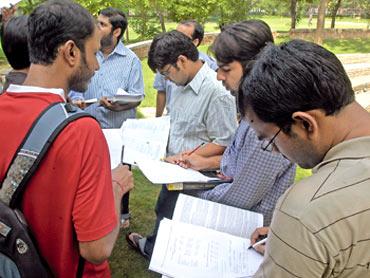
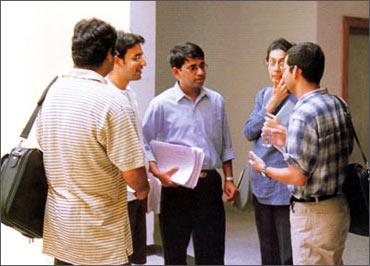
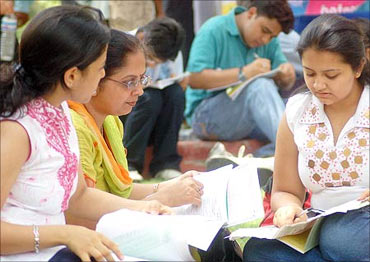
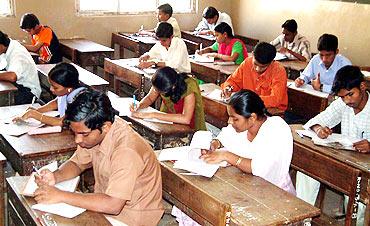
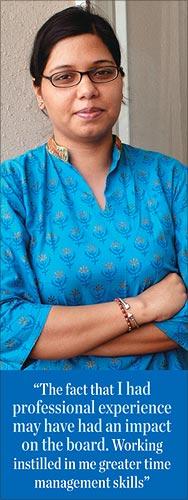
Comment
article